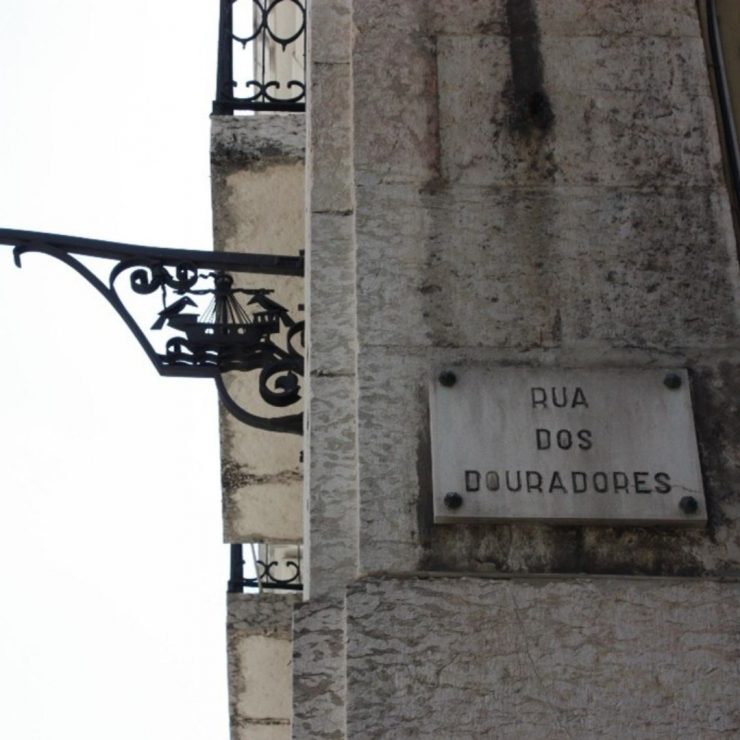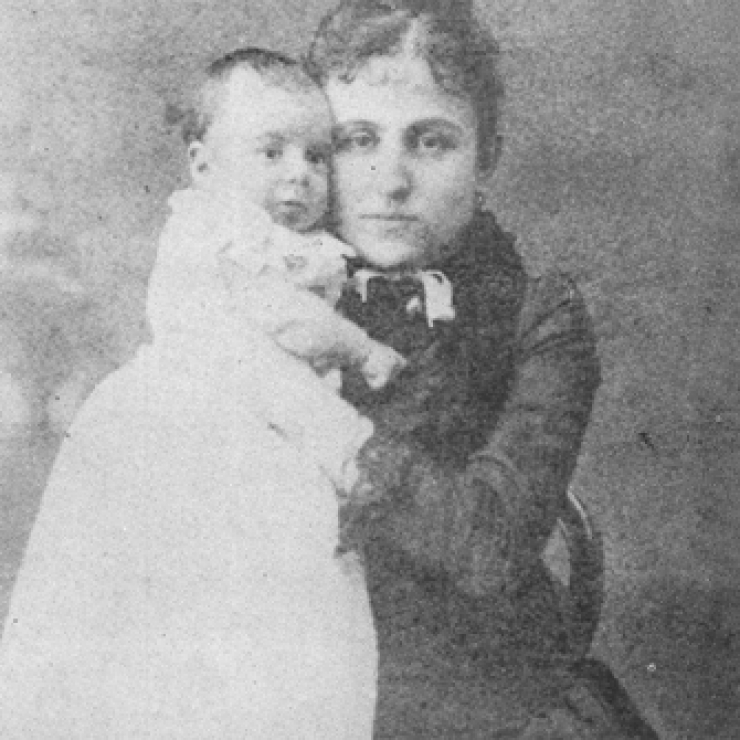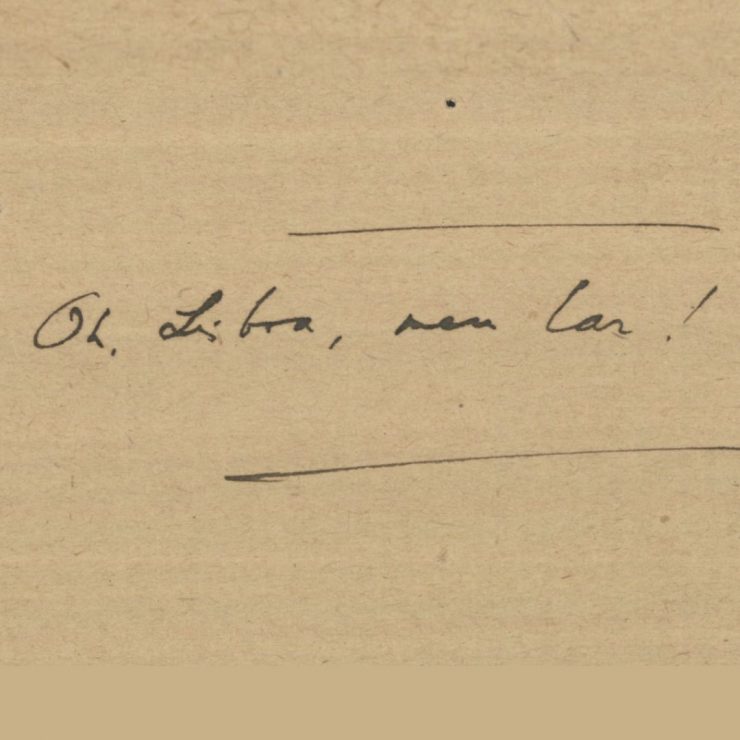The month of June in Portugal is characterized by the Popular Saints’ Festivities. The country is filled with festivities and events, especially on the nights of Saint Anthony, Saint John and Saint Peter. These are nights of food, drink, music and fun in the streets of the most popular neighbourhoods, decorated with arches, colourful balloons and basil plants. These are the nights preceding the three days that, in Catholic tradition, are dedicated to these three saints, respectively Saint Anthony (13 June, with famous celebrations in Lisbon), Saint John (24 June, in Porto) and Saint Peter (29 June, for example, in Évora and Sintra).
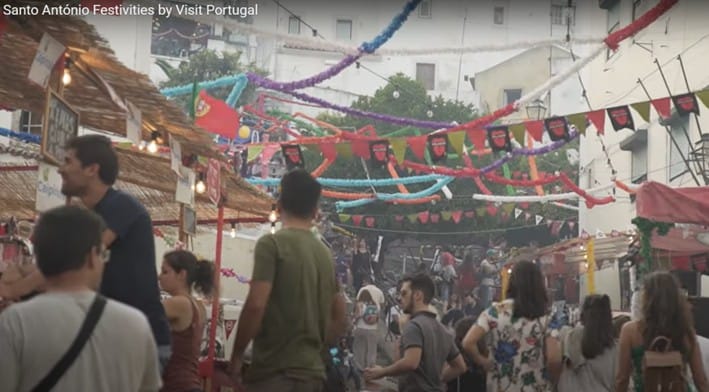
Fernando Pessoa was born on one of these festive days, namely 13 June 1888. He was born in Lisbon on Saint Anthony of Lisbon’s Day, a Catholic priest and theologian and Franciscan, who was born in Lisbon on 15 August 1195 and died in Padua (Italy) on 13 June 1231. The date of his death determines the feast day associated with him. Patron saint of the city of Lisbon, his baptismal name was Fernando, and his surname was probably Bulhões. It is no coincidence that Pessoa was baptised Fernando António Nogueira Pessoa, in honour of the saint of the day on which the poet was born.
During his adult life, Pessoa was not a Catholic; in fact, he considered himself a “Gnostic Christian” and sought to unravel the mystery of the Divine through a very personal spiritual quest, independent of religious institutions, which unfolded through readings on esotericism and philosophy, almost mystical poems, astrology, occultism, and a great deal of imagination.
This did not prevent him, creative as he was, from writing verses about the Popular Saints. It should be noted, in this regard, that these poems have been republished several times in anthologies dedicated to this theme: in 1986, in the book Santo António, São João e São Pedro, edited by António Braz de Oliveira and introduced by Alfredo Margarido (ed. A Regra do Jogo); in 1994, Salamandra Publishing House and Casa Fernando Pessoa published the book Os Santos Populares (Popular Saints), with illustrations by Almada Negreiros and Eduardo Viana and the collaboration of Yvette Centeno.
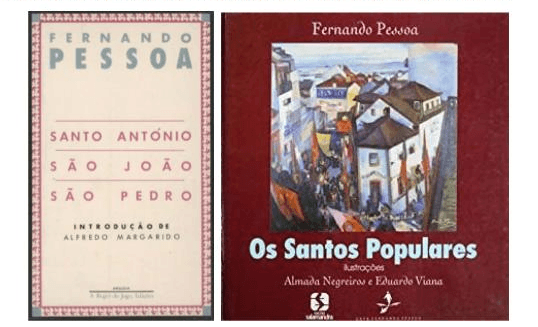
In 2018, Pessoa researcher José Barreto republished in the magazine Pessoa Plural the three poems dedicated by Pessoa to St. Anthony, St. John, and St. Peter, written on the night of 9 June 1935. José Barreto argues that, with these three poems, which remained unpublished at the time of the poet’s death, «Fernando Pessoa intended to challenge the appropriation of traditional popular celebrations for the religious and political purposes of the Catholic Church and its ally, Salazar’s Estado Novo.» The researcher himself states, in the newspaper Observador, as Rita Cipriano reports: «We do not know what direct contact Pessoa had, if any, with the festive atmosphere that attracted large crowds to the streets of the city centre during those days and nights,» yet «he was displeased with the ideological and cultural ascendancy that the Catholic Church, supported by the government, was visibly gaining in national life.» He then wrote these poems based on this discontent, and with a strongly critical tone.
Here we quote some verses from the three poems, based on the versions found on the website arquivopessoa.com (with updated spelling).
Enjoy your reading and happy holidays!
Fabrizio Boscaglia
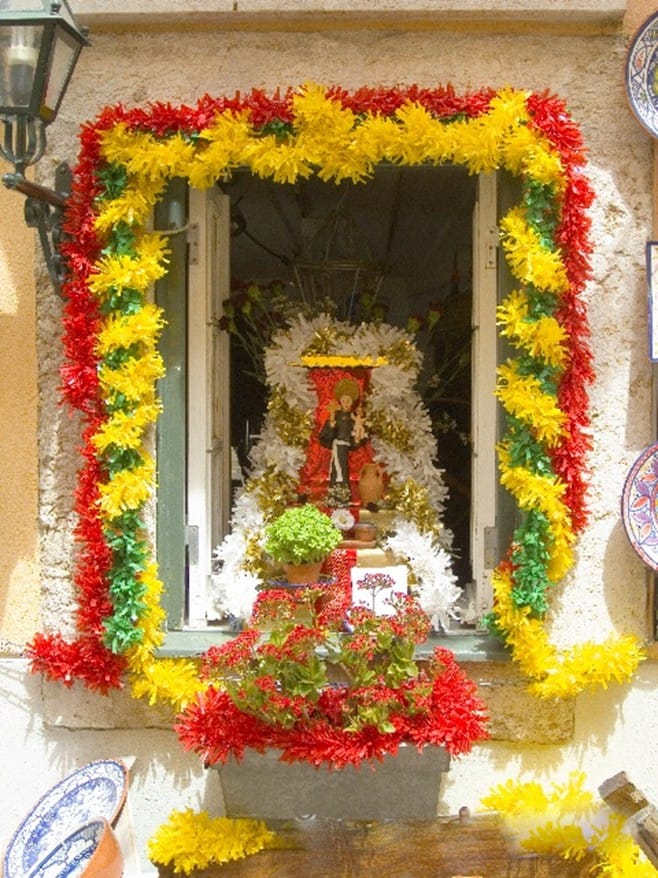
(Photo of Fiore Silvestro Barbato)
Santo António (Saint Anthony)
I was born on your exact day —
The thirteenth of June, warm with joy,
Urban, bucolic and human,
Where even those paper carnations
With their broken flagpoles
Know how to laugh…
Holy profane day
Whose light tastes like honey
On the floor of spilled good wine!
Saint Anthony, you are therefore
My saint,
Even though you never gave me
Your Franciscan spirit,
Catholic, apostolic and Roman.
[…]
Read the entire poem
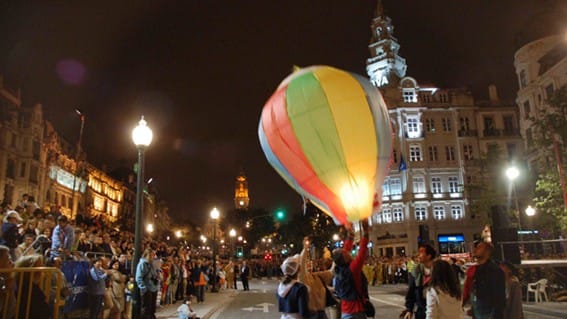
(Photo: Visit Portugal)
São João (Saint John)
Oh Precursor, what a fine job!
Not that your Christ, incarnation of Goodness —
Whoever your Divine Herald may be.
Evil are those who, without divine mysticism
Nor Christian or even human tenderness,
Put Jesus in the cell of doctrine
With the shackles of hatred bound
To then stain with false faith
The poor man that every man is
[…]
Read the entire poem

«S. António», «S. João» and «S. Pedro» of Fernando Pessoa. (Biblioteca Nacional de Portugal/Espólio 3, 63-17r; published by José Barreto in Pessoa Plural, 2018).
São Pedro (Saint Peter)
[…]
In the streets,
People walk with joy,
It is faith,
Not in you or your beard,
But in what joy is.
[…]
Read the entire poem
_
Discover Lisboa & Pessoa from Lisboa Pessoa Hotel, a themed boutique hotel inspired by Fernando Pessoa.


